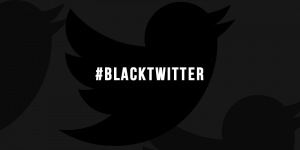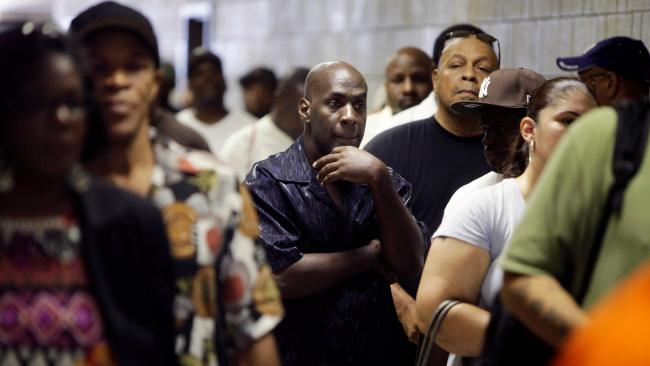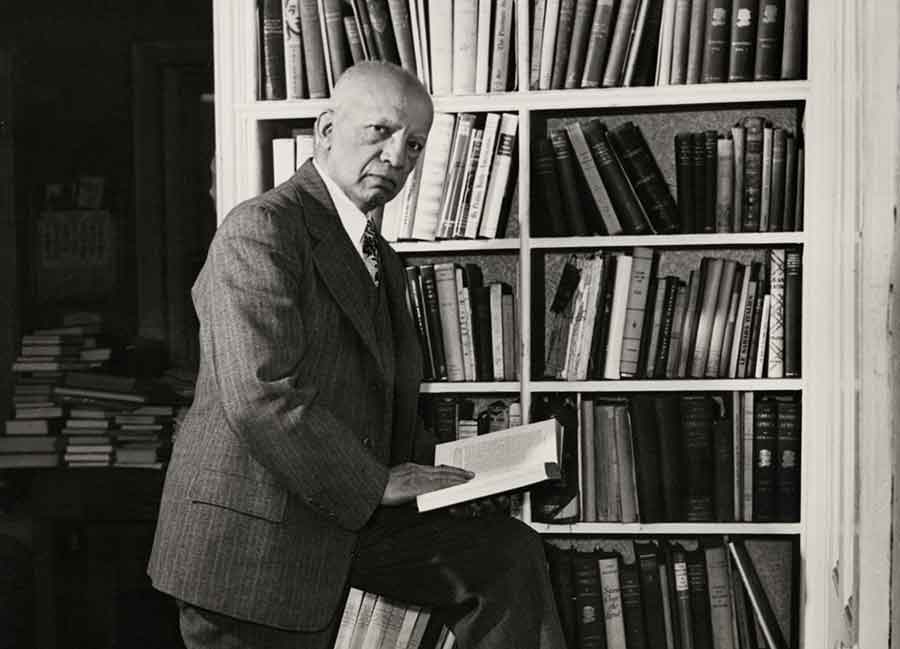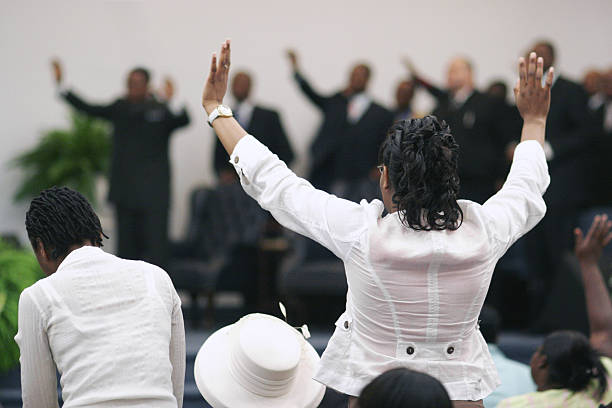(ThyBlackMan.com) Poynter recently reported that the Los Angeles Times hired a reporter to cover Black Twitter.
In a recently released staff memo, Los Angeles Times Managing Editor S. Mitra Kalita said:
Dexter Thomas joins us today to cover Black Twitter (which really is so much more complicated than that). He will work closely with the newsroom and #EmergingUS to find communities online (Black Medium to Latino Tumblr to Line in Japan) and both create stories with and pull stories from those worlds. Dexter is from San Bernardino and is a doctoral candidate in East Asian studies at Cornell University. He has taught media studies and Japanese and is writing a book about Japanese hip-hop. He began working in digital media at UC Riverside as a student director of programming at KUCR-FM (88.3), independently producing podcasts, music and news programs. He writes regularly on social justice, Internet and youth culture, and video games.
This hire shows that the LA Times acknowledges the social, political and economic power black social media users have as newsmakers, framers and consumers. It is often on the front lines of reporting and framing discourse in contemporary news cycles, covering everything from Caitlyn Jenner to the Charleston shooting to the deportations in the Dominican Republic.
Thomas can help the LA Times stay current on what’s happening in and concerning the black community. Too often, major publications solicit commentary on issues concerning black people from journalists who have a very limited general understanding of black people and their culture. Having someone from the #BlackTwitter community reporting on these things will keep readers of the LA Times better informed of these trends, issues and discourses in real time. It also will bring alternative perspectives and counter-narratives into the mainstream.
But this news also raises genuine concerns. Too often, #BlackTwitter reports and writes stories, breaks news, sets social media trends and sparks provocative discourse about national issues and events, then big publications swoop in and reap the benefits from its groundwork. This type of crowdsourcing frequently does not receive proper citation, either (though it generally does terrific reporting, one publication that often draws criticism for this is BuzzFeed). This hire begs questions about the broader commodification of black culture  on and away from social media.
on and away from social media.
There is also apprehension about the effect big media outlets have on #BlackTwitter’s autonomy. Major publications have a tendency to mine #BlackTwitter for trending topics, click bait and conflict. They overlook nuanced discourse within the black community in favor of stories of tension between the black community and society at large (which makes business sense). That is not to say we should not shed light on these issues, nor does it dismiss #BlackTwitter’s necessary role in counternarratives and news-framing, especially in an era of #BlackLivesMatter. But the way these stories are re-packaged and overly-simplified is often very problematic. Attention is often narrowed to things within the black community that are of limited interest to wider audiences.
For example, last year, the popularity of Iggy Azalea sparked discourse about cultural appropriation in music. Though not all black people agreed on the points and issues in question (no group is monolithic), our timelines were saturated with, “#BlackTwitter Blasts Iggy Azalea”-type titles instead of “#BlackTwitter Weighs In On Iggy Azalea: Some Criticize Her, Others Praise Her.” We pay more attention to ignorant articles saying that too many white roles are being changed for actors of color than the success of crowdfunded ventures like Black&Sexy TV (which the LA Times reported on). And currently, when talking about Hillary Clinton’s appeal to black voters, we’re more likely to see trolling titles like “Will Hillary Be Our 3rd Black President?” instead of an op-ed where well-informed political commentators argue practical reasons why black people should vote for her or someone else. Black social media discourse is often stripped of its nuance and repackaged to fit in with mainstream, easily digestible news bites.
It’s important to note that though it is noble for the LA Times to pay attention to and be willing to give a broader platform to marginalized voices, part of #BlackTwitters appeal to black social media users is that it is a space where black people can produce and consume alternative narratives not just in accord with the mainstream gaze, but also away from it. It isn’t just a platform, it is also a refuge.
Black people go to #BlackTwitter for a vast array of reasons — to remain to privy to current events; to engage in discourse surrounding issues regarding race, gender and class; to stay hip to the latest music; to pass around funny memes; to raise awareness for progressive causes; to live tweet commentary on television and award shows; to troll each other and more. But the stories pulled from its timelines are usually about “The Black Struggle” or “trends.” For many reasons (that require book-length expounding), that is where much of mainstream interest in the general black experience begins and ends. If we agree that #BlackTwitter also functions as a safe space, we can see how increased mainstream gaze on it could further deteriorate its capacity for self-actualization, regulation and preservation.
Despite the potential good Thomas’ presence has in the LA Times newsroom, there are ethical questions surrounding a major publication acting as a gatekeeper for what is newsworthy in and from the black community. This doesn’t mean publications like the LA Times have bad intentions. In fact, it most likely to the contrary. But this hire could be an unintended furthering of a capitalistic relationship between black culture and mainstream interests, as journalism’s new business model turns site visits and views to dollars and cents. Even as a black journalist who writes about a range of issues, I often struggle to reconcile the fact that in a profession where conflict equals clicks (this article could be a case in point), my sexier sell to many publications are stories commentating on and contextualizing conflicts between blacks and other groups (particularly white people).
A simple way the LA Times can account for these ethical issues and better utilize Thomas while reporting on conflict is by balancing its commentary on individual acts of prejudice (white cop killing black unarmed suspect) with reporting on institutional racism (the prison industrial complex). But it also should try to produce stories outside of racial conflict narratives. For example, Thomas is interested youth culture. With Comic-Con around the corner, he could write a story about how increased demographic representation in the comic industry has sparked an increased in black, female and LGBTQ readers.
Like every other group, the general black experience includes internal and external conflicts, but it is not limited to them. It may not be what big media publications think their readers would like to read, or get them as many pageviews as they want, but it would be a more genuine effort to diversify the stories being pulled from #BlackTwitter. Thomas could also help push back on mainstream media outlets tendency of fetishizing black cultural and claiming things that come out of it as “new” when it hits mainstream awareness (many describe this phenomenon as “Columbusing.” The term “twerking” being described as a “trend,” and other discourse surrounding it, is a good example). And lastly, the LA Times should work hard to grant Thomas a great level of autonomy in the stories he would like to pursue. These steps would mirror the organic and self-defining spirit of #BlackTwitter, keep both Thomas and the LA Times accountable to it and promote a mutually beneficial relationship.
But in general, I think the hiring of Thomas is a baby step in the right direction, and it may even convince other publications to follow suit. It shows that the LA Times has or at least is eager to keep its finger on the pulse, and is proactively trying to remain privy to and tell the stories of a diverse America. It has amazing potential to bring new perspectives into a national newsroom, but also could further the commodification and essentializing of Black culture and voices. Let’s hope the outcomes match the intent as best as they can, and that this new development will not only continue, but also spark new conversations surround the ethical challenges of allowing multiple voices to be heard. There will be major triumphs, and plenty of mistakes.
Written by Joshua Adams
Official website; http://www.twitter.com/iRockJoshA

















Leave a Reply